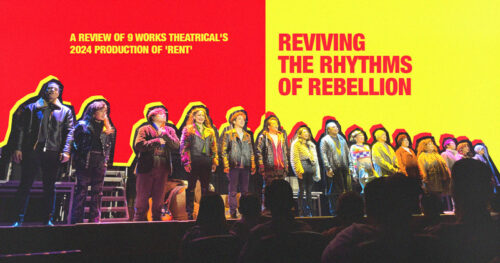BAFTA-nominated film “Aftersun” makes trauma feel like a bad dream
Aftersun opens with the POV of a slightly out-of-focus handheld camera, awkwardly capturing a moment. Voices feel disembodied as we, the audience, are left to blearily piece together the conversation taking place. It’s filmed like a home video, the kind stored in a VHS tape gathering dust in a house you can barely go back to.
RELATED: Gitling: An Ode To Bacolod and Words Left Unsaid
Events unfold and clarity comes to us in bits and pieces. Paul Mescal plays Calum, a 30-year-old father to 11-year-old Sophie, played by Frankie Corio, as the two spend a portion of the summer at a resort in Turkey. Their time together is interspersed with footage by Sophie taking videos on a MiniDV camera, dream-like sequences in which Calum dances in a strobe-lit room, and glances of events that take place years after the vacation. This is a story of memory, and its limits in terms of making sense of the past.
Over the course of the film, Calum’s mental health struggles come into slightly sharper focus, though the film’s visuals seem in a constant state of effervescence. Depression manifests in subtle but undeniable ways, and Sophie must come of age while attempting to understand her father. The dynamic between Calum and Sophie is one where two people who care deeply for each other tread carefully around each other, played to great effect and humanity by Mescal and Corio.
Director Charlotte Wells’ intentions become clear, and we become attuned to Aftersun’s autobiographical nature. The film’s non-linear structure feels like turning a memory over and over in your head, twirling around a rough jewel in your hand to investigate all its facets. Prescient to this is the fact that most of Aftersun’s storytelling takes place against the backdrop of an idyllic resort, a space that feels sun-blessed in its best moments and painfully artificial in its worst. In the haze of Aftersun’s storytelling technique, moments of clarity come to us in the form of emotional devastation. In all seriousness, the film should come with content warnings for anyone who’s had a complicated relationship with a mentally ill parent, although these moments are beautifully executed.
Aftersun is a masterfully crafted investigation of memory. Wells weaves seemingly disjointed events together to form a tapestry of memory that feels organic and dream-like. Except, you don’t really wake up from Aftersun. Like a devastating memory, Aftersun is a film that lives inside your head for the rest of your life.
Words Jam Pascual
Art Matthew Ian Fetalver


















